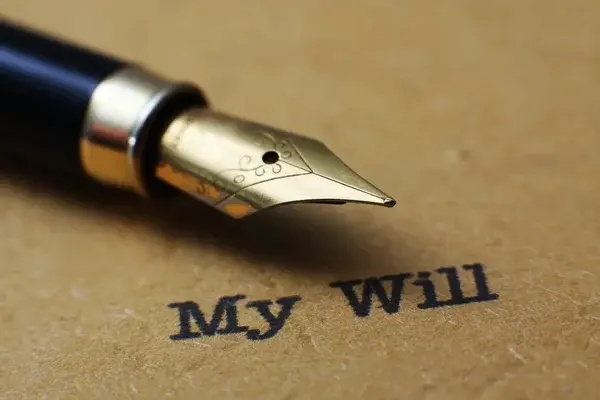Which Will Would You Choose?

If you or your loved ones have not yet created a will, you are not alone. In fact, according to a recent survey, not having created a will puts you among the majority of Americans. Like many Americans, you may wait for a major life event to occur before putting your final wishes into a formal estate plan, but this is not advisable. Estate planning should be done early, often, and with attorney assistance to ensure it serves its purpose and stands up to scrutiny.
Why Fewer Americans Are Making a Will
Caring.com’s 2024 Wills and Estate Planning Study found that only 32 percent of Americans currently have a will—a 6 percent decline compared to 2023 and the first drop since 2020.1 What is holding people back from making a will? The top reasons cited were:
● procrastination (43 percent),
● a belief that they are too poor or do not have enough assets (40 percent),
● unsure how (16 percent), and
● costs too much (16 percent).2
For starters, anyone age 18 or older should have a will. Without one, the state decides what
happens to your money, property, possessions, and minor children after your death. You lose
the ability to decide things like who is responsible for winding down your affairs, who receives
the things you own, and who cares for your children. Making a will is best handled by working with an experienced estate planning attorney. A simple will does not cost as much as you might think, especially when you consider the potential costs of not having one.
Types of Wills
In some cases, your will can be typewritten, handwritten, or stated verbally to others. However,
the laws in your state dictate the legal requirements for a will, including the types of wills that are
recognized. A will that does not meet the formal requirements of the state you live in can be deemed invalid by the court, effectively leading to a scenario where you die intestate (i.e., without a will). If that
happens, state law—not your intentions—could dictate what happens to your assets and your
family should you die. Different types of wills include the following:
● A formal will is the most common type of will and is recognized in every state. In most
states, it must be typewritten and signed by you (the testator) and two or three witnesses. Some states require notarization. This is usually the type of will that experienced attorneys recommend, as it is the most widely accepted.
● A holographic will is written and signed in your own writing and may not require witnesses for it to be legally valid. Not all states recognize holographic wills, and in states that do recognize them, the requirements to create a valid holographic vary.
● A nuncupative will is stated orally, usually in a recording or to a witness. Most states do not recognize oral wills as valid. Those that do typically have narrow criteria for who can use them, such as members of the armed forces actively engaged in combat.
Potential Issues with Oral and Handwritten Wills
Even if your state allows for handwritten or oral wills, they can pose problems. Often, the decision to use these types of wills occurs because somebody has put off creating a will until the last minute, and an emergency forces their hand. That is why they are sometimes called “deathbed wills.” Handwritten and oral wills, particularly if they were created last minute and not reviewed by an attorney, are more prone to mistakes and ambiguities that can cause confusion and make them harder—or impossible—to enforce. This is another reason you should not procrastinate when creating your will.
When considering what can happen when you are not proactive about creating a will, the estate of Aretha Franklin offers a cautionary tale. When she passed away, the Queen of Soul left a handwritten will. Although her home state of Michigan recognizes them, scribbles, hard-to-read sections, and contradictory passages in her will forced her heirs into a protracted legal dispute to determine her true intentions. Research shows that up to 3 percent of all wills in the United States are contested in court.3 A contested will can not only undermine your original intentions but also potentially turn your loved ones against one another and lead to them spending their inheritance on legal fees.
Professional Planning for Life’s Biggest Decisions
Whether you have not yet made a will, are in the beginning planning stages, have a handwritten or oral will that you want to convert to a formal will, or need to revise a will due to life changes, our estate planning attorneys are here to make sure everything is done correctly. While estate planning is for everyone, every plan is different. For an estate plan that meets your long-term goals and provides peace of mind in the present, please reach out and schedule a meeting.
1 Rachel Lustbader, 2024 Wills and Estate Planning Study, Caring.com, https://www.caring.com/caregivers/estateplanning/wills-survey/ (last visited Jul. 31, 2024). 2 Id.
3 Margaret Ryznar & Angelique Devaux, Au Revoir, Will Contests: Comparative Lessons For Preventing Will Contests, 14 Nev. L. J. 1 (Jan. 15, 2014),
https://scholars.law.unlv.edu/cgi/viewcontent.cgi?article=1525&context=nlj.
